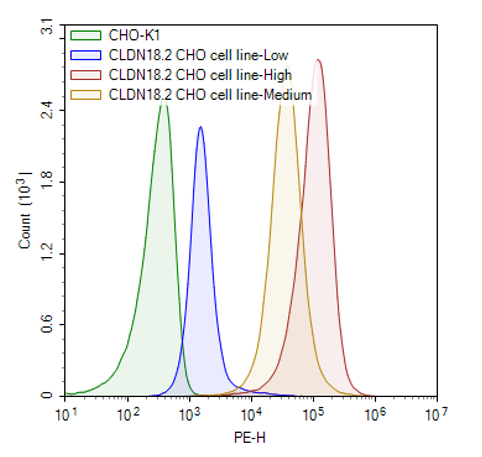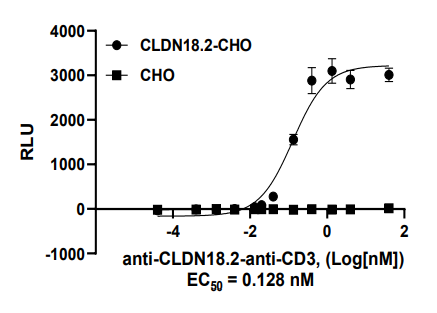Claudin-18 Isoform 2 CHO Cell Line (High, Medium, or Low Expression)
Recombinant clonal CHO cell line stably expressing full length human claudin 18.2 (claudin 18 isoform 2, CLDN 18.2, gene accession number NM_001002026.3). The stable clonal cell line was selected for different levels of Claudin 18.2 expression (High, Medium, and Low) compared to the parental CHO-K1 cell line.
Purchase of this cell line is for research purposes only; commercial use requires a separate license. View the full terms and conditions.
| Name | Ordering Information |
| Thaw Medium 3 | BPS Bioscience #60186 |
| Growth Medium 3D | BPS Bioscience #79539 |
The cell line has been screened to confirm the absence of Mycoplasma species.
Claudins are integral membrane proteins and components of tight junction strands which serve as a physical
barrier to prevent solutes and water from passing freely through the paracellular space between epithelial or
endothelial cell sheets. The claudin-18 gene has two splice variants: claudin-18.1, which is found primarily in the
lung, and claudin-18.2, which is expressed exclusively in the stomach. Claudin-18.2 is highly expressed in gastric
and pancreatic adenocarcinoma and may be involved in tumor development and progression. Due to the
morphological changes and epithelial-mesenchymal transition occurring upon cancer progression, the
extracellular loops of claudin 18.2 become exposed and available for antibody binding. These biological
characteristics suggest that it is an ideal target for therapy and have led to the further development of monoclonal
antibodies against claudin 18.2, such as Zolbetuximab.



